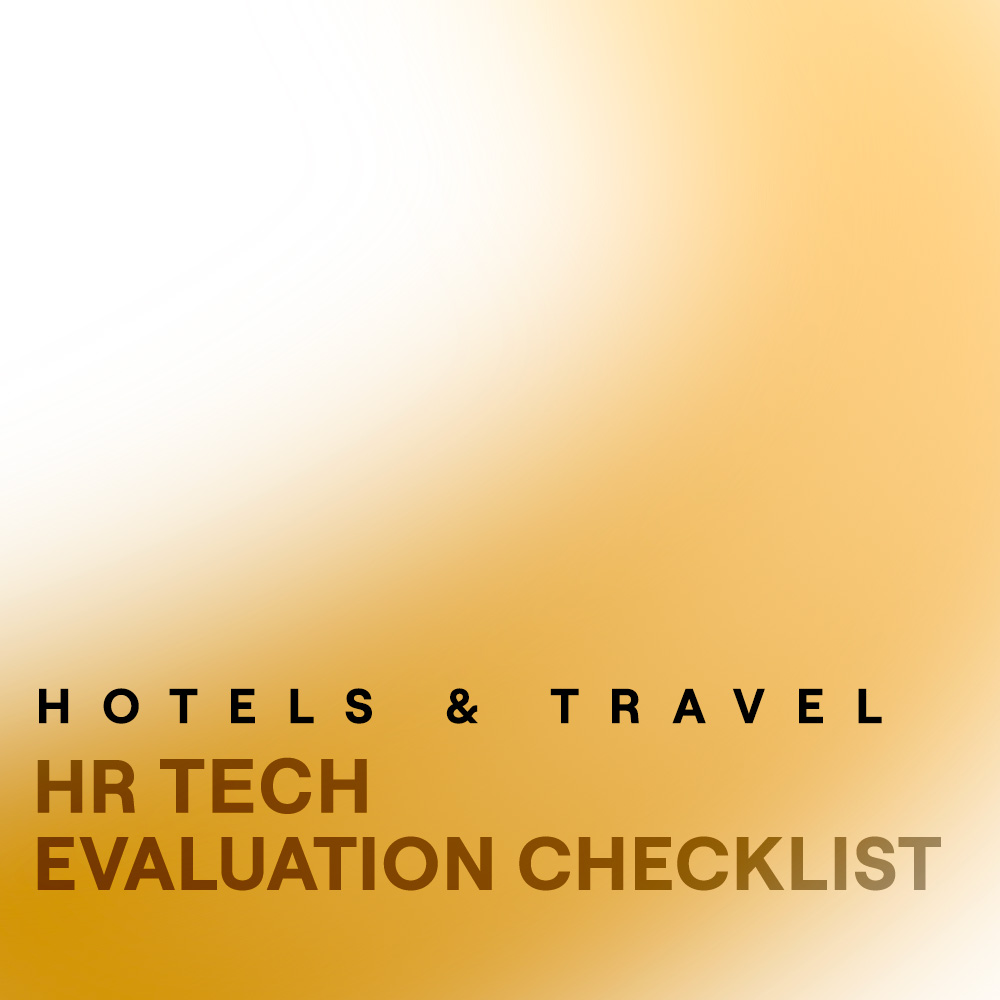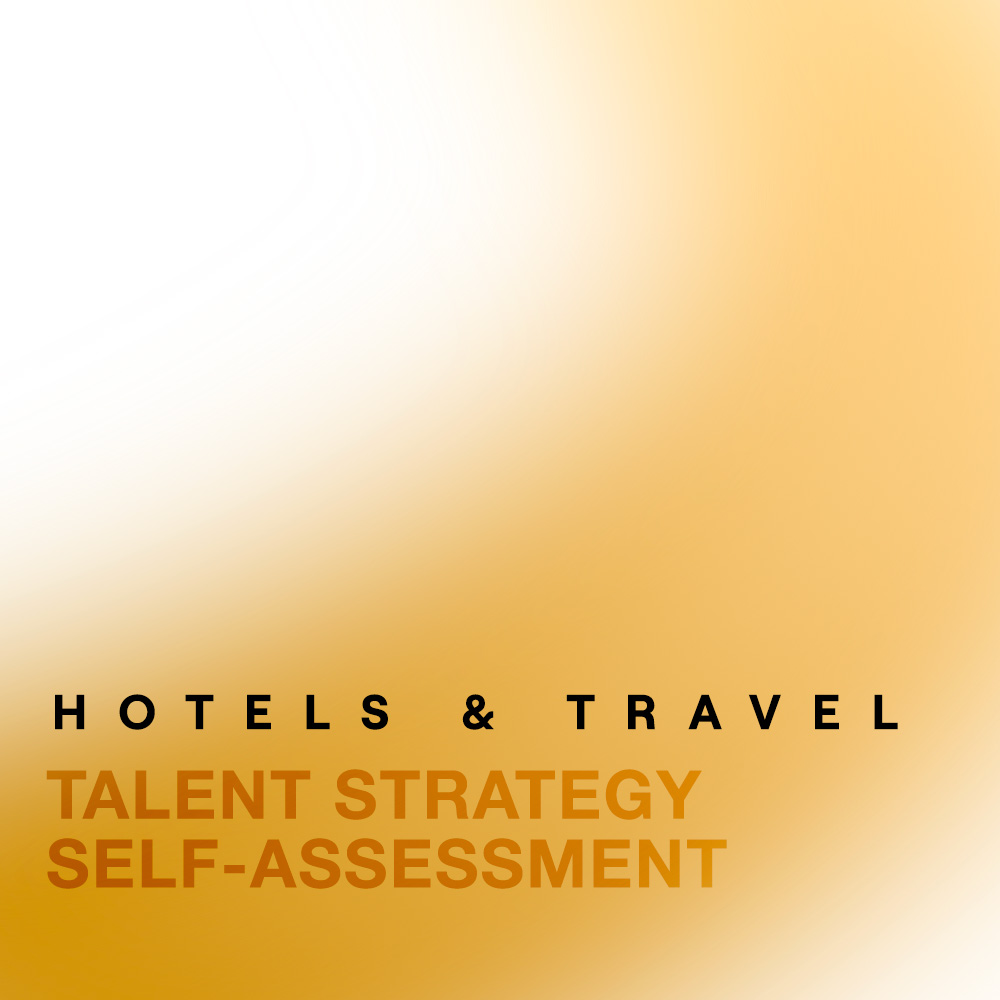
Building the Plane While Flying: How Sonesta Transformed Hiring During Rapid Hotel Expansion
"We had to build the plane while we were flying it," said Rachel McHugh, sharing a pivotal challenge from her time as Global Head of Talent Acquisition at Sonesta International Hotels: navigating the aftermath of 2020, when strategic hotel acquisitions doubled the company’s footprint virtually overnight. What could have been purely disruptive became an opportunity — reshaping talent strategies, accelerating integration, and building a stronger foundation for growth.
Sonesta, the eighth largest hotel company in the U.S., suddenly found itself needing to manage talent acquisition across 1,100 properties without missing a beat on guest service or daily operations. "We acquired a bunch of hotels, which was fantastic for the growth of our organization. But it also happened pretty rapidly," McHugh explained.
Unlike companies with centralized recruiting teams, Sonesta operates on a deliberately distributed model. At the property level, Hotel Managers and their HR counterparts work hand in hand — overseeing everything from compliance and employee relations to managing local hiring needs, all while staying true to the unique demands of their markets and brand cultures.
The challenge went beyond typical scaling problems. Always-on roles across hundreds of locations, each with unique regional dynamics and brand requirements, required constant staffing. Traditional processes that worked for steady-state operations crumbled under expansion pressure.
What followed would transform not just Sonesta's hiring processes but their ability to compete for talent in an industry notorious for labor challenges and high turnover costs.
Watch the video here or continue reading for the key highlights!
When Rapid Growth Outpaces Infrastructure
McHugh's challenge wasn't theoretical — it was painfully practical and urgent.
"Lots of manual candidate trackers, lots of variations of job boards and managing application flows that weren't necessarily all coming into the same place," she recalled. "We didn't really have much of a centralized view on the interview process."
The operational challenge carried real business implications. In hospitality, unfilled positions directly impact guest satisfaction and revenue. A single understaffed property can damage brand reputation and lose customers to competitors. Industry turnover costs — ranging from $5,000 to $15,000 per position, depending on role level — meant inefficient hiring processes weren't just inconvenient, they were expensive.
Sonesta's distributed approach, while effective for regional focus, became a constraint during rapid scaling. Hotel teams needed solutions that would simplify hiring, not add complexity. "Given that they're juggling a thousand different priorities," McHugh explained, "anything that we did in this space had to make it easy for them."
Competition for hospitality talent intensified during this period, with major hotel chains investing heavily in recruitment technology and candidate experience improvements. Sonesta needed capabilities that would differentiate them in tight labor markets while supporting their unique operational approach.
Strategic Technology as Business Enabler
Rather than seeking a quick fix, McHugh's team evaluated solutions based on future potential and strategic value. "It wasn't just a today's solution. It was a future solution where we could turn on different features further down the line," she revealed.
"For us, Phenom was a no-brainer. The technology was head and shoulders above the other platforms we looked at. The automations really spoke to us, the AI capabilities, and features like interview scheduling."
— Rachel McHugh, Global Head of Talent Acquisition, Sonesta International Hotels
Instead of simply providing a new career site or an enhanced CRM, Phenom distinguished itself by combining HR-specific applied AI and automation capabilities for immediate operational improvements throughout the talent experience with advanced features they could activate as sophistication grew. Implementation focused relentlessly on user experience for busy hotel managers. "If you're not a recruiter 100% of the time, naturally you're going to lean into different parts of a hiring tool than what a recruiter would," McHugh emphasized. The approach prioritized simplicity that would immediately ease daily burdens with:
AI-powered candidate matching
Automated yet personalized communication
Automated interview scheduling
The strategy balanced local autonomy with national scale. While hotel managers maintained their crucial regional relationships and market knowledge, corporate launched national campaigns for five critical role categories: housekeeping, front of house, sales, hotel management, and maintenance/engineering. This dual approach preserved the personal touch that defines hospitality hiring while achieving the candidate volume necessary for sustainable talent pipelines.
"We decided to take on national campaigns centrally to help that message get out there and help our hotels with the application flow and lead generation," McHugh mentioned. These campaigns emphasized authentic relationship building — quarterly company culture newsletters rather than constant job pitches — creating lasting connections with potential candidates.
Business Growth Through Better Talent Access
Within twelve months, the platform delivered results that fundamentally changed Sonesta's market position in talent acquisition. Career site traffic increased 160%, but more importantly, visitor engagement reached over three minutes per session — 52% above industry averages.
"We increased our traffic by 160 percent, which was huge, and I still kind of balk at that result," McHugh admitted. "People are clicking through three or four different pages, which again is unheard of."
The engagement metrics translated directly to business value. Quality improved alongside quantity, with a 27% increase in candidates who advanced from application to interview. "Better matched candidates are applying to the roles that we have out there," McHugh noted.
In fact, AI-powered candidate matching generated 85,000 unique leads, talent Sonesta had never been able to reach through traditional methods. "These are people, this is talent that we hadn't tapped into because we didn't have an avenue to tap into them," McHugh revealed.
Smart workflows delivered both efficiency gains and candidate experience improvements. Application recovery messaging — simple nudges when candidates abandoned applications mid-process — proved most impactful. The team built over 500 automated workflows, while their chatbot "Tony" handled 145,000 candidate interactions with pre-programmed responses to common questions.
"We scheduled 4,000 interviews via the tool last year. That helped us save about 1,000 hours in manpower."
— Rachel McHugh, Global Head of Talent Acquisition, Sonesta International Hotels
Perhaps most significantly for business operations, Phenom Automated Interview Scheduling saved 1,000 hours of coordination time while processing 4,000 interviews. Those hours translated directly to hotel teams having more time for guest service and relationship building — core differentiators in hospitality.
National campaigns doubled talent pools within six months, creating sustainable pipelines for always-on roles that drive operations and guest satisfaction.
Lessons for Growing Hotel Companies
Sonesta's growth extends beyond operational efficiency to strategic market positioning. By solving the infrastructure challenges that constrain many hospitality companies, they've created capabilities that enable previously impossible business strategies.
Hotel teams can now focus on what they do best, building regional relationships and understanding market nuances, while corporate provides the technological backbone for talent attraction at scale. This combination of local expertise and enterprise-level tools creates market advantages in tight labor markets.
The company has since formed an AI focus group to guide responsible technology adoption across all departments. "Any organization would be silly not to embrace it," McHugh asserted. "We can really use the power of AI if used in the right way."
For hospitality leaders facing similar rapid growth challenges, McHugh recommends starting with fundamentals. Her top advice for peers focuses on application recovery messaging: "It's so simple, but very effective," she emphasized, "having that digitally friendly approach to hiring. “People pick up their phone, they start to do something, and they put it back down to do something else. That little nudge and reminder — Remember, you were really interested in working at Sonesta’ [helps]."
The right technology partnership enabled Sonesta to maintain their people-centric culture while gaining the operational efficiency necessary for continued growth. As McHugh reflected on the journey, "We're now just juggling, which is nice," contrasting their current state with the previous reality of "juggling and struggling."
The key lies in applying scalable, industry-specific AI and automation, choosing a solution that enhances rather than replaces human connections. For HR leaders in hospitality, think of AI as your own behind-the-scenes concierge — handling the logistics so your team can focus on what they do best: making people feel at home.
Tired of being short-staffed during your busiest seasons?
Get a High-Volume Hiring Audit and see where AI and automation can deliver your biggest wins.
Fariya Banu is a content marketing writer at Phenom who loves decoding buyer psychology and crafting stories that convert. With engineering and marketing expertise, she brings analytical thinking to creative storytelling. When not writing, she's snorkelling, cooking, or diving into any adventure that sparks curiosity.
Get the latest talent experience insights delivered to your inbox.
Sign up to the Phenom email list for weekly updates!










